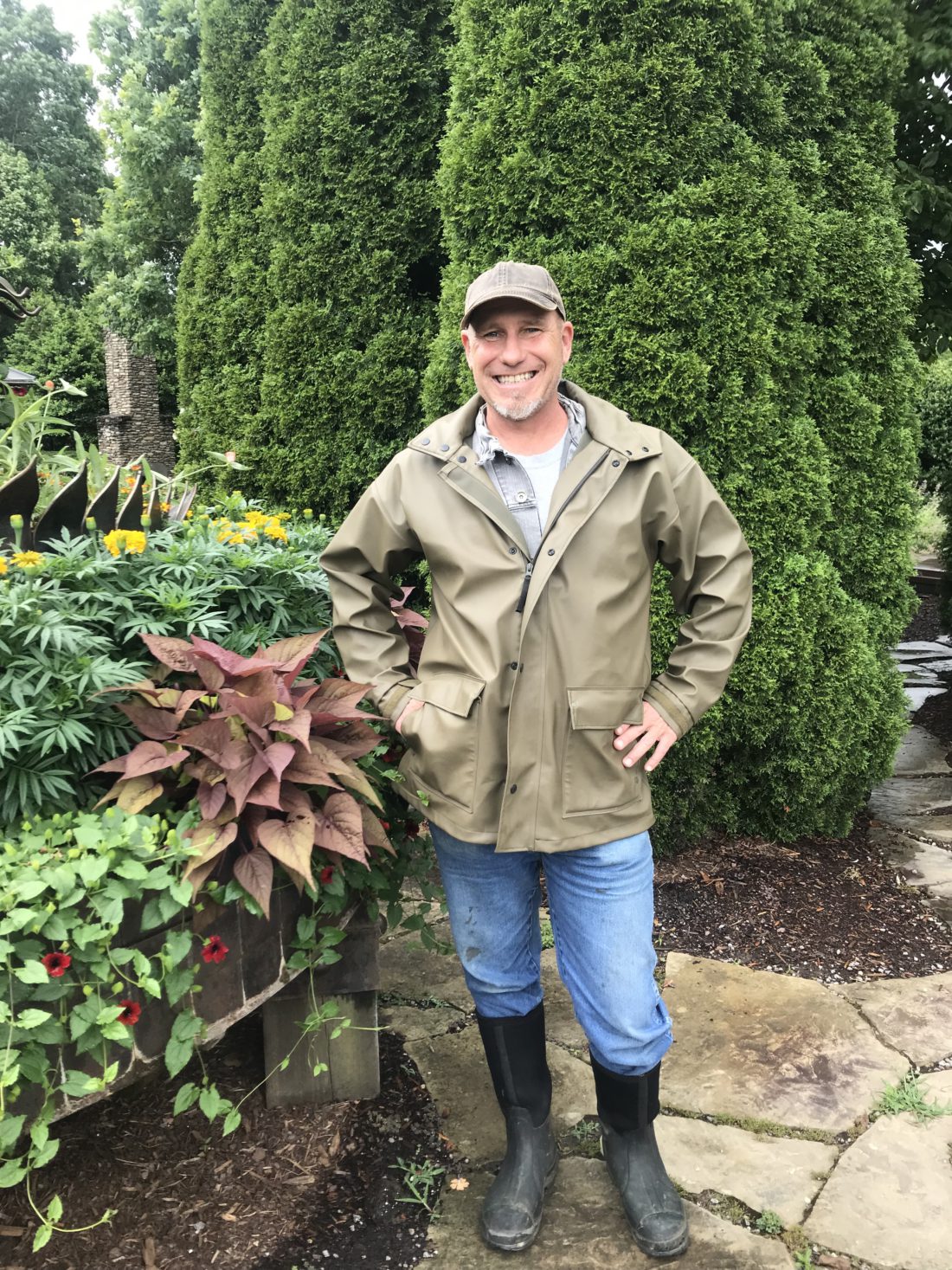Since he was a teenager in Charlotte, Mac Franklin knew what his life’s work would be. He began landscaping during high school and continued the career while studying art, industrial art and design at Appalachian State University. After college, Franklin moved west to work for a landscape architect in San Francisco and a nursery in Denver. He found his way to Asheville in 1993 to work at the Biltmore Estate’s gardens and grounds, then joined the team at the N.C. Arboretum.
Franklin is currently the arboretum’s director of horticulture and manages the teams who keep its 65 acres of cultivated gardens looking tiptop. And as a metal sculptor who operates a workshop at the arboretum, he is the artist behind numerous planters, sculptures and a birdbath in those gardens.
Some of his metalwork has even appeared in the arboretum’s annual Winter Lights show. “Being able to combine my two passions, which are horticulture and art, has brought a great deal of satisfaction to my job over the years,” Franklin says.
During a golf-cart ride and stroll about the grounds, Franklin spoke with Xpress about the importance of native plants, pollinator-friendly plantings and his concern about urban sprawl.
This interview has been condensed and lightly edited.
What brought you to Asheville and to the arboretum?
I wanted to move back to North Carolina, so Asheville was the logical choice to be back in the mountains and to be close to Charlotte. The focus on crafting culture was a strong draw for me, as well as the amount of horticulture that was taking place in Asheville. Having the state public garden — the N.C. Arboretum — here was a big draw, as was the Biltmore Estate.
Can you explain in layman’s terms the difference between horticulture and botany?
Horticulture is the practice of working with plants in a landscape. It’s the active participation between a human and the plant material and the manipulation of that plant material. Botany is more the study of plants generally in their native habitats. There’s quite a bit of crossover. The ideal is that your horticulturists would also be students of botany.
Why are native plants and wildflowers important to the environment in Western North Carolina?
The importance for them is providing habitat, not only for pollinators, but also for our winged friends: all of the birds that eat seeds and use those areas for open collection of insects. You can purchase a “wildflower blend,” and it may not be plants that are native to your area — it’s just labeled that way. Native herbaceous material is going to give you the best benefit for your environment.
Why is the arboretum certified as a Bee Campus USA institution?
It is wonderful that people are so aware of the needs and benefits of our pollinators. We work with a vast majority of native plant material, which is the most productive material for pollinators — not only as host plants, but as nectar plants. The wide range of native plants and variable habitats on our property can be very conducive to pollinators.
So, does the arboretum have beehives?
We do not, but we have no lack of honeybees or pollinators. We have considered hives. We actually are planning, in the future, to put them on the roof of our operations center.
What do you think is the most pressing sustainability issue in WNC?
Urban sprawl. Being able to create sustainable development is definitely the biggest challenge for our community.
It also speaks to the importance of urban escape to places such as the arboretum. That was very evident during the pandemic. Seeing our increases in visitation during COVID-19 really exemplified that we were getting that urban escapism into our natural areas of the arboretum and gardens.
Are you able to identify every single plant on the arboretum grounds?
The more that you know in horticulture and in botany, if you are a humble person, you will realize how little you know. We live in one of the most biodiverse areas of the county, the Southern Appalachians. There are some great plant professionals on our staff that do know quite a bit, but personally, I would say I do not know every single plant that may be on our property. It’s certainly a goal to strive towards.
Can you recommend a houseplant that is hard to kill?
Interior plants are not necessarily my forte, but peace lily is one that’s hard to kill. As for exterior plants, it’s hard to go wrong with any native plants in their proper setting.






I am struggling as to whether I should use a herbicide with Glyphosate due to possible danger to the honey bee population. Could Mac Franklin give me his take on this?
I would like to contact Mac. Is that possible?